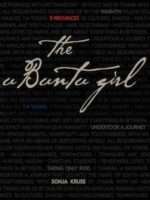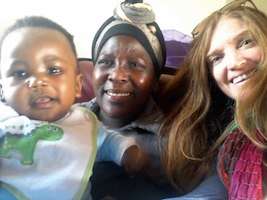Day 58: Maatjies in Matieland
Christmas had come and gone and it was not yet time for the new year to show its face. I had just experienced the most special celebration in Elim – a Moravian Mission town . . .
I have no clear idea where I am heading, just that I need to move forward. In the direction of Cape Town. The second couple who pick me up between Elim and Stellenbosch decide for me. They have to stop off in Stellenbosch on their way to Cape Town, so that is where I am going.
The following morning early I awake in the backpackers’ accommodation the kindly couple paid for me and set off in search of coffee. There is complimentary coffee in the kitchen but no creamer. OK, so black coffee it will have to be. One spoon. One mug. Waiting. Standing there and listening to the kettle, I glance around the kitchen and see the fridge. One of those bar glass fridges. And I spot a bottle of milk.
Should I? Shouldn’t I? Nothing can ever justify taking something from someone else, taking something that does not belong to you. Right? But I quickly come up with a whole host of justifications: they’ll hardly know; I’ll only take a little; I deserve it – after all, I’m trying to do something good with this uBuntu journey; I have not fully woken up yet, so it won’t really be my fault. And I anticipate the taste of the coffee with milk and without – the first wins the moral, or should I say immoral, struggle.
The kettle announces with a click that it is finished. Swoosh, sighs the fridge door as I slide it open. Not another sound is heard as I gingerly lift the milk bottle. Agile and feline. I fear being caught so I quickly pour the boiled water into the cup – kettle down – milk in hand – pour – slosh – like a cat burglar. Milk bottle in hand – back in the fridge – swoosh – fridge door closed again. YES! I punch the air victoriously and ignore the little voice in the back of my head that demands to know, ‘What are you so smug about? You just stole someone’s milk!’
I’m almost doing a happy dance, when I look down at the mug.
NO! NO!!! The milk, obviously way past its sell-by date, has curdled in the hot liquid. ‘Off milk for off Sonja!’ taunts the little voice.
After a mugful of black remorse I realise that I have only about R18.50 to my name. I need to find food, get the feel for this town and its people, find a new host family. I walk around for a couple of hours until I can no longer ignore the hunger pangs and find a supermarket. On my limited budget I must choose carefully: a small hunk of cheese, just enough for one; two slices of ham and two rolls. I leave feeling very proud of my purchase, but as I make my way through town I see that there are quite a few people living on the streets. Tired-looking people. Hungry-looking people. And in one of my biggest moments of shame, I feel my hand tighten around my meagre purchase.
What is that, Sonja? Is that fear? Fear, that someone might take your food away?
I walk for a few blocks looking for a quiet spot and find it in a leafy neighbourhood. There I rip into the plastic bag and in a matter of seconds I manage to assemble my meal. Both rolls are devoured in an instant. Only when the last morsel has been swallowed do I come up for air. I look around. No-one has witnessed my feeding frenzy. No-one has shared this meal with me.
I feel shame. With my head hanging and my feet dragging I wander off in search of new friends and come across some car guards sitting under a tree. They must sense that I am drawn by their easy laughter as they invite me to join them. There are two women with them who are not guards of any description. They are bergies. ‘What’s a bergie?’ I ask.
Maria’s wrinkled, compact little face scrunches up in disbelief at my ignorance. ‘I’m from Zululand,’ I offer in defence.
Now she’s stumped. She does not know where that is.
‘Ek hettie ’n huis ’ie. Ek bly daar in die berge,’ she explains.
I ask her where she gets money to buy alcohol. She begs, she says.
‘Why do you drink, Mama?’
I learn that it keeps her warm at night. It keeps her warm by day. It keeps her from asking too many questions. It makes her comfortable. And it makes her forget. Forget that her son was taken away from her by her family. On the day she left the hospital they were there. They didn’t want him living on the street. They have a home, but she doesn’t fit there. She tried staying there with her son, but she couldn’t cope with the confinement. ‘Dit was baie koud,’ she says.
This journey is my teacher. I am asking questions out of curiosity rather than because I want to hear ‘right’ answers. Things don’t always fit in this process of ‘things are as they are supposed to be’. It was a selfish day today of black coffee and cheap sandwiches, but I walk away from the small group feeling that I managed to share something after all.



